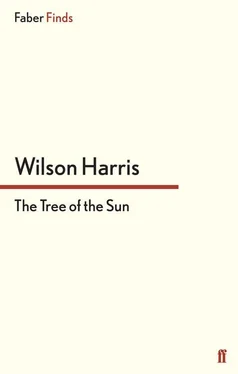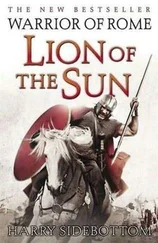Her father’s sudden death had been a blow, her sudden abortion a shock, and something in her, which was originally bruised or torn before it actually appeared-to-be-bruised-or-torn, ran to embark into another beginning of the self. Ran to da Silva; her body of letters fell into him.
As such he dreamt, in the minute she came, that three skeleton mothers pencilled him into her receptive flesh and he knew her as if he received himself within her feminine flesh.
As such she dreamt, in the minute he came, that three skeleton fathers pencilled her as his penetrative phallus and she knew him as if she became a masculine pay or rope of selves.
One masculine pay of self was a conical brow of music, elongated epitaph (her father’s face), the other fused Francis, Harlequin and Leonard, the third was da Silva (whose pencilled receptivity confirmed a feminine bank of universe).
And so a grossly dogmatic character of economic rape, in father time’s manuscript species, repudiated itself into a variety of contrasting features, in dialogue one with the other, as if to affirm that the quest for the gods and the being of the gods were breached fatherhood, motherhood, illegitimate/legitimate husbandhood, wifehood, expectations and novel confrontations, in which one appeared to move towards a central garment of penetrated stillness (as one fell) or to be still within a central unravelling movement or never-ceasing womb (as one ascended).
Thus the quest for the gods was a turning in into others within infinite particularities of universal lived, unlived, lives, infinite suffered or eclipsed pencil, infinite enjoyed or abrasive brushstroke, infinite ink, infinite unspoken word or wounded whole in all its sexual instincts, in all its mathematical, abstract, equations.
Her conversation with her father across the years from her chair in the park was as much with conical, fused, creator-males as it was with the mysterious bodies of bird-woman Rima, lioness-woman Eleanor in them, in da Silva’s rocking chair canvases.
“I do not see”, da Silva thought rebelliously, as he painted Jen’s pregnant body in his studio, “why I am driven to make all this sacred fuss (involving my own unknown mother) about a foetus, an unborn creature. Pencils. Bones. Rocks. Sheets of music. Brushes. Paints. Canvases. Legends. Maps. It’s quite an expensive undertaking to bring a spiritual brat into the world. It’s rot. Life is dirt cheap, has always been. Who cares? Sure enough I care for you Jen. For you and your physical offspring-to-be. You’re my immediate family. But why should I bother beyond that?”
“Fuss? Is spirit fuss? I protest….” Julia cried and stopped. She dug into him fiercely, into his flesh that was now her flesh in the degree that he received her into his canvases as a woman receives a man. Their climax made him suddenly confused — even angrier still — at the dividing line between spirit and creation. His tools sang nevertheless, painter’s brush and sculptor’s hammer, singing flesh of a bird, the spirit of a bird. There was the rhythmic stab of a sculptured song, there was a sound of soundless crying, as the songbird lit in her body and inserted its beak into her flesh, into his flesh, into a piercing thrilling musical wire.
Her father had been a divided man, a wired man, Julia recalled as she sat in the park with a sense of being re-made in the depths of a climacteric quarrel of states of spirit and matter. The songbird thrilled within her as if it had suddenly crossed the dividing line; and in crossing had left her vaguely amused at da Silva’s anger and father time’s predilection for incurable romance. She could hear the singing quarrelsome beak tapping coded conversations into the woven ear within her, telling her that in token of da Silva’s receptivity — in token of his flesh becoming her flesh — he, father time, possessed a heart of gold and would make a generous buyer of their mutual child’s, woman’s, bird’s, man’s, body in the park were it (that body) put up for auction.
It was typical of him, Julia recalled, to launch into a ribald or cryptic jest on the metamorphoses of flesh. (Did skeleton metamorphose flesh or flesh skeleton in order to initiate an elaborate spirituality or spectre of materialism?)
It was the sort of question he jestingly asked on occasion but never quarrelled about. His was no quarrel of painter or poet. And his jests or questions were signs, nothing more, of an instinctive appreciation of the necessity of the arts, the comedy of the arts. His divided nature’s generous complicity with a heart of gold to serve both politics and art with singular devotion or innocence, may well have earned him — had he lived — a knighthood or a peerage in the Businessman’s Commonwealth.
Indeed it was that generosity that captivated Julia from her earliest years until her tycoon father grew larger-than-life into the kindest of fathers and a patron of libraries, hospitals, universities, colleges, schools, playing fields, all over the world.
“Perhaps”, da Silva prodded her, with a trace of jealousy in chisel and hammer, as he capitalised afresh on her quarrel with Francis which occupied a large place in her letters, “your father would have done even better in the cradle of the sixteenth century and may have acquired a kingly reputation for saintliness as a renaissance trader, lover, priest. Is it the genetic carriage or miscarriage of saint or sinatra that croons and warbles in my tooled radio beak as I sculpt you abstractedly, expectantly …?”
She was suddenly furious, almost resistant, rebellious, under the vicarious hammer and the brush, and then she yielded to him, curiously glad he had raised his half-mocking, half-jealous, question. Her father would have been amused, would have laughed almost appreciatively at such just, unjust, deserts. Yes, she was not ashamed of her father nor of the deep well of emotion that stood between them. He would have adored a grandchild of whatever pigmentation, half-sinner, half-saint, half-capitalist, half-socialist. It would have made no difference to him. No wonder in the midst of eulogies there had been an unflattering question or two raised in some of the obituary columns of newspapers. She was prompted to ask as she scanned a batch of clippings—“It is said”, she looked at him, “that you paid low wages father and the housing on some of your estates was bad.”
“I paid higher wages”, said her father, “than were standard practice in any colony in which I invested all I had in the tools of a new humanity, in a golden age. I love the people.”
The concreteness, almost mythical tone of his reply, made her conscious of the hierarchies he served at the peak of which stood a robust puritanism allied to a golden romance. “I love the people.”
The higher a god ascends the more curious becomes, in some instances, his love of the people whom he draws up with him into heaven until the lines are eclipsed between their poverty and his wealth. (His mistresses may even become angelic orders of woman.) And the maternity of the globe begins to value every complex bird-song, in its theories of language, as if to raise dialectal accents to hymns of praise. It was to her father’s eternal credit that an earthiness of communication obsessed him, within his genius for making money, and he saw all creatures as frail and grounded, claws and wires, through which to sound the brambly niches of heaven in earth, the niches of esoteric emaciation in the voices and bodies of young and old goddesses destined for ultimate refinement or elevation.
As flesh began to age he still clung to it. Here lay his incorrigible innocence, his generosity of heart, despite his divided nature. Flesh in a heart of gold. Flesh mirrored in gold. And even, at the very end, when he collapsed, in a black woman’s bed, flesh was mirrored in bone, flesh was metamorphosed bone.
Читать дальше












